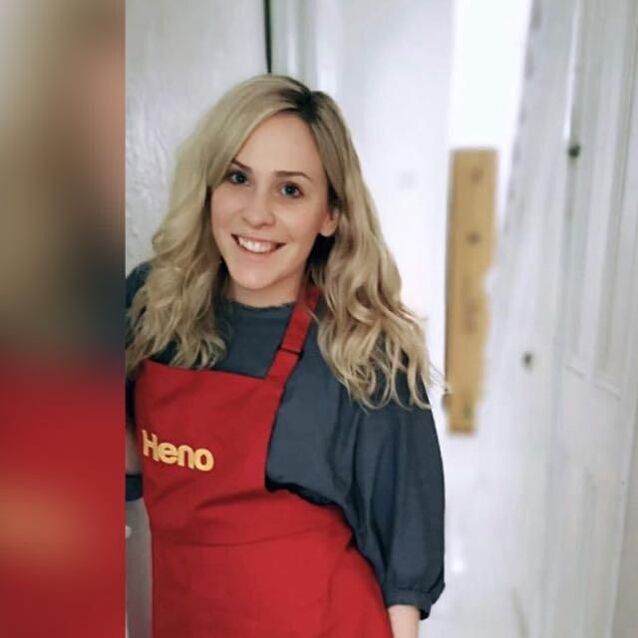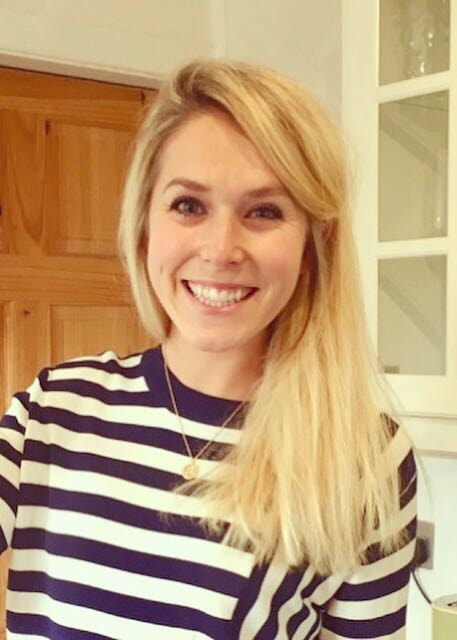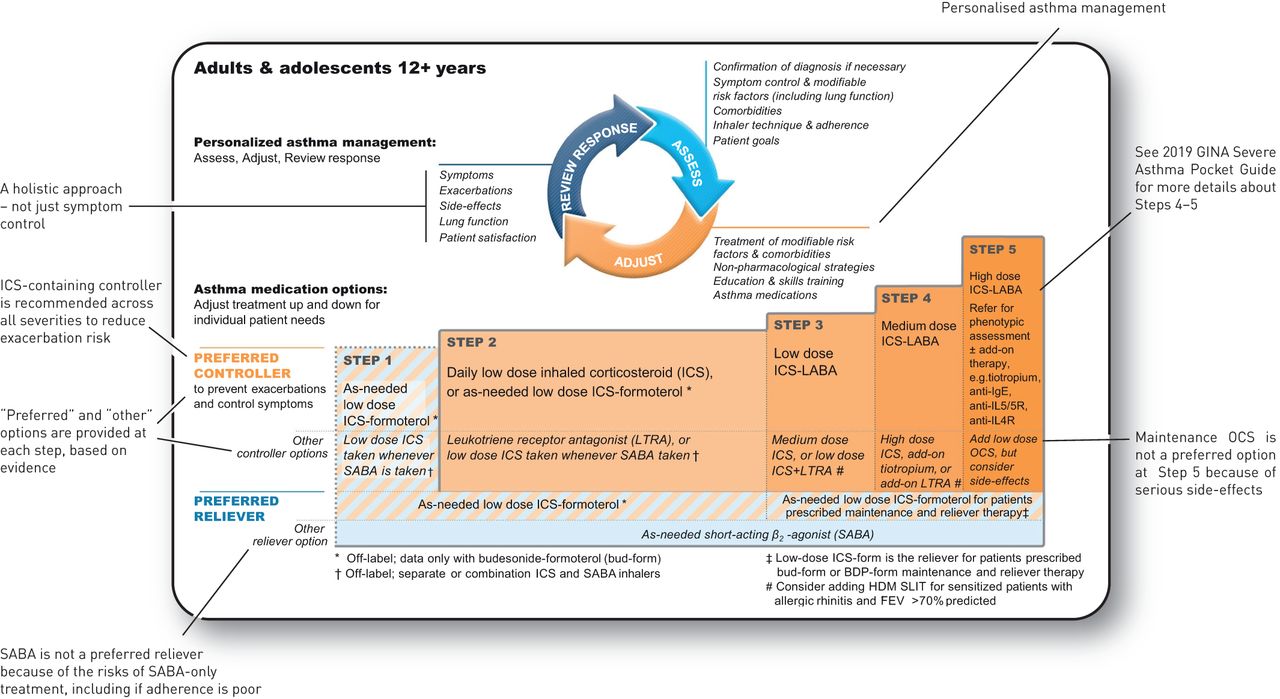|
Dr Tom Cromarty Editor Interests: Paediatric Emergency Medicine, Medical Engagement and Leadership, Simulation, Quality Improvement, Research Twitter: @Tomcromarty |
Welsh Research and Education Network
WREN BlogHot topics in research and medical education, in Wales and beyond
Dr Celyn Kenny Editor Interests: Neonates, Neurodevelopment, Sepsis, Media and Broadcasting Twitter: @Celynkenny |
|
Dear colleagues and friends The WREN blog is back! As we all get ready to face a tough winter, let us learn to be kind to ourselves, and practice resilience. Let's start by reading about AWEN (All Wales Wellness and Education Network), a brilliant initiative that has allowed trainees to remain connected with one another, and share knowledge on a virtual platform. The second piece is a thoughtful and inspiring personal reflection, with practical advice on how to overcome stress and trauma. Finally, we have included a brief reflection on the Digital Asthma Masterclass from September. We hope you enjoy the read! *************************************************************************** All Wales Wellness and Education Network (AWEN) Andrea Misquitta, ST8 On behalf of the AWEN team We really hope you have heard of AWEN by now- if you haven’t where have you been!! We are the All Wales Wellness and Education Network - a group of trainees and consultants hoping to improve your educational and wellness needs. We were born during this pandemic, when it became apparent that paediatric teaching had been put on the backburner in many places. We felt this was unsatisfactory for our training needs and so using the London School of Paediatrics as our inspiration, we launched AWEN. The trainee group is comprised of Tom Cromarty, Sarah Myers, Eve Bridgeman and me from the South and Jemma Wright and Kim Hallam from the North. We also have Assim Javaid on board as our ideas guy and Stacey Harris, who along with Sarah and Jemma is one of our wellness champions. We have tried to make this a trainee led initiative as much as possible, but it wouldn’t work without the support of the LPD’s in many trusts and our fantastic educational lead Pramodh Vallabhaneni. We wanted an all Wales teaching programme to share out the load of teaching and enable us to ensure that teaching is happening 5 days a week, which is so exciting and something I’ve never experienced before and I’m almost at the end of training! Obviously due to COVID we are not able to congregate in our handover/seminar rooms as before to access teaching, so it is all being done virtually – however this is not such a bad thing and provides so much more flexibility, you can even tune in pre/post nights in your PJ’s from the comfort of your own sofa/bed if you want! It also allows those currently not working due to maternity/paternity leave and OOPE’s to stay in the loop. We have been busy beavers behind the scenes, setting up the timetable, ensuring it is always updated with the latest links. Sending out a whole host of messages on WhatsApp to remind you of what’s happening. Trying to think about interesting topics as well as finding presenters (along with the LPD’s) or presenting ourselves. We have also been collating your feedback for the presenters. Not to mention trying to get our heads around the virtual teaching world and all the other "techy" stuff we have had to get to grips with – admittedly easier for some of us than others!! Now what we really need is a little help from you – please attend the sessions when you can and participate if needed (it really does make a difference if people join in). We have had good numbers so far so please keep it up. Please complete the feedback form - the presenters are giving up their time to teach us and it is so important that we can give them something back in return. It also gives us a record of how many people are attending and what’s working and what isn’t. If 30 people actually attend teaching but only 10 people complete feedback, we don’t have an official record of actual numbers, which makes it really difficult for us to put forward a strong case for keeping this going in the long term. Please consider volunteering to be a facilitator, it will really help us make these sessions run smoothly and allow the presenter to just concentrate on teaching. We have had some excellent sessions so far, including formal teaching, journal clubs, case discussions and excellent Friday grand rounds. Wellness Wednesdays have also been well received with lots of exciting things in the pipeline, including poetry, crafts, Makaton, and diversity. Neonatal teaching has been extremely popular too. We have heard that you are really enjoying being able to access teaching in areas you are not currently working. We are working on allowing you to catch up on sessions. Unfortunately recording hasn’t always worked and some sessions are not yet being shared due to confidentiality. The ones that have been recorded are on our Dragonflix YouTube channel and the links to them are on the archived sessions page of the timetable. If you subscribe to Dragonflix and request notifications, you will get a message when new videos are added. Some videos are added as unlisted so you may not see them on the channel page. This is our teaching programme and it’s not often that we are in the driving seat, so we want to hear from you:
Most of all though, please tune in and enjoy! Contact details: Contact us via WhatsApp - Numbers available on Welsh Paeds Trainee Comms Contact us via Email - [email protected] *************************************************************** Overcoming stress and trauma: an idiot’s guide for junior doctors Stacey Killick, ST8 Life is good. Life is bad. And life can be mediocre in the middle with nothing to moan about. As doctors, it is well recognised that we are strong people, determined and resilient and able to deal with a variety of stressors in our professional fields. But what about when it all gets too much? When the stressors are in both your professional and your personal lives and you feel that even the most ordinary of days can be a struggle, what then? This year has not been my year. Not that it has been anyone’s year. But as far as years go, I can only liken it to falling down the stairs, over a banister and landing crash bang into a wheelie bin of clinical waste. The bad kind. I was doing specialty training as part of my HDU spin at a local tertiary hospital. I had had fertility treatment and had successfully fallen pregnant. Things were busy but things were good. Then all of a sudden, things changed fast. I went from having some lower abdominal pain to going to my local DGH and being diagnosed with a ruptured ectopic to going into full on haemorrhagic shock and being rushed into theatre. A tummy full of blood and one necrotic tube with blob later, I was kept in until my obs were better and then off I went home. Problem solved. No follow up I was told by the Obs and Gynae registrar, as all had been sorted. I didn’t cry for 3 days. I was determined to get home. And then once there, I was determined to carry on like nothing had happened. And that was ok. Until it hit me. It wasn’t just the loss of a pregnancy, the loss of some of my fertility and emergency surgery. I had nearly died. It was all new I told myself, a few weeks of staying at home and then I would access all the help I needed. It seemed sensible at the time. And then COVID happened. I was then stuck at home, isolated from my family and friends, unable to see my GP, unable to access any counselling and unable to get any sense of normality back in my life. I was off for 3 months in total, and I used my time off to try to acknowledge and overcome the loss and trauma that I had gone through before returning back to work. To accept the order of events, the emotions and difficulties they have caused, and to get back into a good place. Since returning to work, I have been looking at the various sources of advice on how to cope with stress and trauma, how to cope, how to be more resilient etc. And the advice is fairly repetitive. Sleep for 7-8 hours a day, eat healthily, avoid/minimise alcohol and caffeine use, exercise regularly. If these things were so easy, wouldn’t we all be strutting around like Joe Wicks with a six-pack, a stethoscope, a big smile and a smoothie?? So. This is what I have learnt. 1. Learn to say no This is a hard one for us as problem solvers and as dedicated workers, but do you know what? It is ok to just do your basic job for a period of time and not take on any extra if that is what you need to do. There are times when we can do revision, take on extra projects and prepare lots of teaching. But equally there are times when you can’t. And to say “I’ve got a lot on over the next few months and I feel a bit overwhelmed so I am looking to just do the basics for a while and then start doing extras” is just fine. I’m not good at saying no, but giving yourself that bit less to do when already feeling overwhelmed is priceless, it has really helped and we are absolutely justified to ask for that. 2. Assess and adjust your social media The internet can provide us with so much: forms of contacting others, sources of news, amusement as well as teaching resources and revision aids. Professionally, you only find what you access. But personally, such is the way that through the likes of Facebook and Instagram, there is so in the way of political ranting, new issues and concerns from our fellow professionals as well as those that pose their breakfasts for photos and brag about their wonderful lives. It can make us feel intruded upon our time off away from work, and it can make us feel inadequate, and even sometimes resentful. So have a good think: do I need all of this? What in the words of Marie Kondo ‘brings you joy ‘? Select what you want. And the rest, either delete or take time out from. Being off during COVID, I found myself reading the news endlessly, worried about my colleagues and feeling guilty for not being there. I also found myself looking at others, their stressing about what seemed absolutely minute and also seeing pregnant women and baby adverts everywhere I went. So I gave myself a 2-month social media holiday with minimal reading of current affairs. And it gave me the time I needed to focus on me and not worry about the rest of the world and nor to feel judged by it. Worth a thought. 3. Speak to those at work You will not be the first person to struggle and you will not be the last. Have a think about your team, who you know and decide who would be best to speak to. Naturally, we identify mentors that suit our own personality, who we are and how we work, and it may be that they would be the person that you would find it easiest to first speak to. It would be good to let your educational supervisor know too, but perhaps in the interim, having somebody who can help you is better than no one. They may be able to re-assure you, to guide you, to advise you. Or perhaps even just listen if that is what you need. Acknowledging the struggle is one of the hardest things to do, so even this first step is massive. Do it. 4. Consider additional sources of support Within our jobs, we have access to Occupational Health. We have access to the PSU (Professional Support Unit). And we also here within Wales have access to HHP. This is Health for Healthcare Professionals. It is a free and confidential service that you can access (www.hhpwales.co.uk and 0800 0582738) whereby you speak about the issues that you are having, and they can arrange various types of support. You explain a bit about you, you are put in touch with someone close to where you live and as it is for health professionals, they work into the evenings and around your rotas and the waiting time is minimal. Priceless. CBT for me has been one of the biggest game-changers. It is not for all, but through this my perspectives have changed and I feel a lot stronger to tackle what life throws at me. Think about it. Try it even. What have you got to lose? 5. Look at your time management It is easy to fall in to the trap of doing work related things on your days off. To finish a weekend on call and to have a week day off only to realise you have a list full of rubbish jobs to do that will take up a lot of the day, resulting in you returning to work and not feeling as though you had a break. I went to a course last year, and they chatted about time management and it made me think, could I be more constructive with my time? And the answer was yes. I now make a list of crappy jobs and I allocate one or two things to every weekday. Can I on a Tuesday just reply to that one email, ring the dentist and put the washing machine on? Yes I probably could somewhere throughout the day. The result: you mostly CAN squeeze these things in, and then when you have an off day, it is free/a lot more free having cleared throughout the week what would have taken a decent bit of time all in one go and ruined your day. The same can be with work related things also, max out your working days and squeeze in to enjoy your off time. The equivalent of the boy at school who did his homework whilst there and then went gallivanting in his own time. It can help and it gives your mind-set that feel of time that is free and is yours to do with as you feel. It won’t work for all, or perhaps entirely, but give it a go, I was surprised myself. 6. Consider speaking to your GP I say consider because it won’t be for all. But consider it. We are doctors, but we are also patients. And it is worth thinking about if we too need help medically. We preach about mental health, about the associated stigmas, about accessing help if you need to. Well, practice what you preach. If you need help, there is no shame in it, no one needs to know about it and if seeing your GP and considering additional forms of support or even medication helps your quality of life, why would you not. It is an option to not be ignored. 7. Speak to your friends and family It sounds basic I know, but we don’t always do it. There is the fear of feeling as though you are whinging, or one of my favourite sayings, having a ‘pity party for one’. And yes, we all know people that are worse off than ourselves and situations more dire than our own. But that does not take away from the stresses or the struggle and the fear in our own lives. And although we carry on and perhaps bottle it all up, it is good to just let it out and just rant sometimes. To have our own five minutes. Do it. You would listen to others without judgement, so let them. 8. Do something you enjoy each week I was on a leadership course and there was a retired matron who had gone into management talking about resilience. Crazy. Loved her. She spoke about resilience being like a reservoir. And that if it was 80% full, you would have room for a bit of rain and even some heavy rain. But if it was 95% full even at the beginning, how would manage if any extra rain came your way? It made sense to me. About looking at life and deciding to get less worried about things, to clear areas of concern up etc. And then came question time. And someone asked her what she had learnt that was the most useful and that she wish she had realised earlier. And she her answer was to do something you love. To keep up with something that you enjoy no matter what, because to have that small fragment of happiness and to be that person that you are is so important. One hour a week she said, just one hour out of the 168 hours in a week. So I thought about it. I love reading; always have, and I kept books for the time that I had annual leave. Yet the rest of the time, I didn’t allow myself to read because I was too busy and it is a distraction. Yet I love it, the escapism it offers. And so I now read at least once a week. I also, when writing/typing during night shifts and in the evenings when cooking, listen to old albums that I love, ones that I can put on and know all of the words and sing to. Even if it is a Vengaboys album. It is small, it is meaningless, yet it is so easy and it makes you happy. 9. Reward yourself Life was so much more straightforward when you were 12, being given your pocket money to spend on yourself, spending hours on choosing which sweets and CDs to buy from Woolworths. Perhaps even £5 if you had a good school report. And then life got real. Before you knew it you were holding numerous bleeps with a less than fully staffed team, bills coming out of your ears, exams to revise for, 2 audits that you’ve been asked to do and that’s without any issues in your personal life. So I ask: when did you last treat yourself? Genuinely spoil yourself for doing such a good job in adulting just by trying? Go for it. A spa day. Some new clothes. That drum-set that you always promised yourself that you would buy when you were big and had the money. Life is tough. And it isn’t always that kind. Why not treat yourself as recognition of how hard you work and how hard you try? Me; I have bought lots of books to read, some expensive face cream (not getting any younger) and also a few pieces of jewellery just because. Finish some night shifts from Hell: breakfast of your choice and some pointless houseplants from Sainsbury’s on the way home. Finish an essay: buy that jacket that keeps cropping up on Instagram. Every now again in between all the big things, we deserve to treat ourselves and pat ourselves on the back. Did you know Amazon do 3 kg bags of Haribo? Well they do…. 10. Look at your perspectives An easy statement. And not so easy to do. But by changing your perspectives you can change your whole outlook on life. One of the best things I got told was to look at what was bothering me: could I change it, was it something so great that I needed to worry about it or change it? And if not, let it go. I am much more decisive about what to worry about now. I don’t pretend to be a shining example. I still have sad days, I still have bad days and I still have the odd day where I just need to take time out. But these were the things that I found the most useful. No one wants to end up stressed or struggling or in a bad place, but it is life and just sometimes we do. My suggestions won’t be for everyone, and that is ok. I just wondered if anyone would benefit from reading something that is honest, genuine, practical and pre-tested. I hope this offers some help and I wish you all the best. ********************************************************************** DIGITAL ASTHMA MASTERCLASS 2020: New frontiers in children's and young people's asthma 4th September 2020 @LondonPaedResp Davide Paccagnella, ST4 This event happened a while ago, but it was too good not to share. All virtual, but so compelling that I felt like being there in person. The variety of speakers and topics made for an excellent learning opportunity, even for medical students or non-medical professional. This was because even the more complex themes were explained and discussed by extremely knowledgeable people, who were able to make them accessible. Asthma is one of the most common paediatric presentations - I’m sure most paediatric health professionals will feel comfortable dealing with an acute exacerbation, and many others will have experience in chronic asthma management. Prior to attending this event, I felt a degree of confidence when thinking about asthma management – but I soon realised that there were so many more elements to think about, so many more issues to address, so much more to understand, when faced with an asthmatic child. It would be difficult to summarise the day – every speaker was truly excellent. So I thought I’d share some of the topics that specifically caught my interest and gave me food for thought. Dr Mark Levy spoke about the Global Initiative for Asthma (GINA) 2019 recommendations that might significantly change the way we manage asthma. Have a look below, and if you’re interested you can read the article in full: https://erj.ersjournals.com/content/53/6/1901046?fbclid=IwAR08fRes-HOveXiSx3RBqK3kVFP2sp34AfwXgUG7myIlaWpmZsdQtrDwWKM Dr Jen Townsend introduced us to the wonders of Beat Asthma, the ultimate (in my opinion) online resource on asthma management – covering everything from BTS guidelines to school leaflets, from individual children’s stories to a video on how to use a turbohaler. Have a browse and see for yourself: www.beatasthma.co.uk
Professor Gary Connett spoke about the importance of the placebo effect when treating asthma, and how it needs to be harvested to maximise results. Together with Professor Mike Thomas, he also looked at the role of dysfunctional breathing in asthma management – which Professor Thomas spoke about at length. It makes for an interesting read: https://www.frontiersin.org/articles/10.3389/fped.2018.00406/full Professor Ian Sinha’s account of the social determinants in paediatric asthma struck a chord with me. It’s only a matter of time before anybody who works with children and young people realises, the degree to which social inequality affects physical and psychological health. We all see it, but what can we do? No easy answer, but I think that making an effort to understand the wider social context, and becoming an advocate for our patients, is a good start. On this note, Professor Sinha has recently co-authored a piece on Child poverty, food insecurity, and respiratory health during the COVID-19 pandemic, which I found interesting: https://www.thelancet.com/pdfs/journals/lanres/PIIS2213-2600(20)30280-0/fulltext Professor Andy Bush covered a very topical issue, looking at the effects of the COVID-19 pandemic on asthma management. Some of the reflections made echoed across the virtual conference room – we have all experienced changes in the management of most (if not all) medical conditions as a result of the pandemic; the outpatient setting has certainly seen major changes (with telephone/video consultations booming) but adaptations have been made to the acute environment too. Here is something to reflect on: are the changes you have witnessed beneficial for patient care? Do they go far enough, or perhaps have they gone too far? Whilst the pandemic inexorably carries on, we all still have a chance to improve systems and drive change.
0 Comments
Leave a Reply. |
Editors
Dr Annabel Greenwood Categories
All
|






 RSS Feed
RSS Feed
